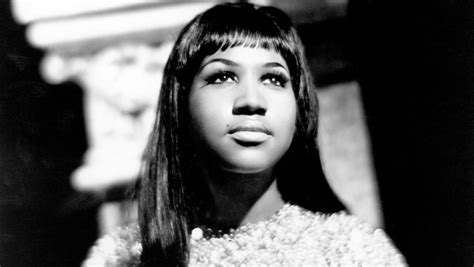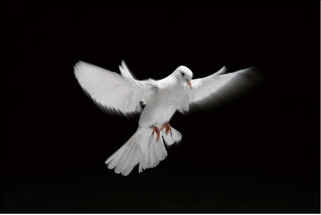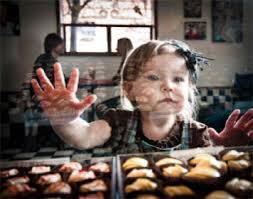|
Word Gems
exploring self-realization, sacred personhood, and full humanity
How To Sit Quietly
In A Room Alone
Epilogue
Can people change?
– no, really, I mean real change
return to the "contents" page
In “Prometheus” chapter 14, Kairissi and Elenchus debate the merits, and dangers, of coming to the Earth to experience a mortal existence. She sorrows:
Oh, My Love, all this is so hard, but I also want for us, so much, to become more than we presently are! I want to open my eyes! I want to be wise! (softly weeping) I want to become a truly “good girl,” and not just one with polished manners, a practiced smile, who silently disdains those who are weak.
a good upbringing, a good work ethic, a good reputation, is not the same as becoming a truly good person
Not by a country mile.

|
Editor’s note: I didn’t understand the meaning of “country mile” until I met it on this incredibly straight highway. It’s Route 84, just north of Flasher, North Dakota. Temporarily residing in the village as a teacher, I decided to go for a walk. See the end of the road in the distance? I thought, well, looks like a mile or so, less than two, for sure, can’t be that far. Later I took an odometer reading – it’s 5.4 miles! round-trip, almost 11 miles, couldn't believe it. I was really tired after that unscheduled marathon. In the country, with few landmarks and endless horizon, it’s very easy to misjudge distance. It’s a lot farther than you think - and that’s the meaning of “country mile.”
|
Kairissi and Elenchus, though they were informed and thought they knew, had no idea what they were in for. She would discover, on her spiritual journey, as outlined in the four “Love In The Afterlife” books, that becoming a truly good person, paradoxically, is both impossible and unnecessary, massively difficult but as easy as taking your next breath. In the end, she would learn that loving Elenchus as a “good girl named Mary” is not good enough.
Can people change? – depends who you ask
Historians, like Will and Ariel Durant, look at the thousands of years of human chronicle and see nothing but one long dreary reiteration of oppression, war, and suffering. They will tell you that man has not changed over the millennia. Their opinion is well-studied and difficult to gainsay.
Religious groups, in their tens of thousands, promise to change you. All you have to do is obey the right infallible guru, believe in the right infallible holy writings, subscribe to the right infallible doctrines, attend services on the one-true prescribed holy day – and then you will be changed into a good person, one that God will not burn. However, as we discussed in the “Spirituality III” article, all these pious claims become pious fraud and constitute a legal fiction: you get baptized, it's said you now have the spirit, but you feel nothing; you get married by a clergyman, it's said God has united a couple, but they feel nothing in the purported blessing; you get confirmed by the bishop, it's said you now have an extra portion of the spirit, but you feel nothing. No change. Zero. It’s all legal fiction and “the emperor has no clothes.”
When Mary agrees to John’s proposal, she probably realizes - in any case, soon will - that he’s not the perfect mate she dreamed of. She “settles” because the “clock is ticking.” Consoling herself, she ventures: “John has certain flaws, it’s true, but our good life together will change him, the joy of having children will change him, the 'white picket fence, apple pie, and Christmas mornings' will change him."
|
you got the power to make me change

Aretha Franklin, Queen of Soul
Hello Sunshine
|
Hello sunshine, So glad to see you sunshine, Hello sunshine, It's been dark for a very long time, I can't explain what I've been through, Trying to live my life without you, People say I act so strange, But you got the power to make me change,
it's been dark for a very long time
Hello sunshine, I'm so glad to see you sunshine, Hello sunshine, It's been dark for a very long time, Without you sunshine, The world is such a lonely place, And without you sunshine,
don't mean a thing without you
My heart was filled with an empty space, Without you sunshine, The wind and the rain, The wonders of spring, Don't mean a thing, Without you, baby, Without you, baby, Without you, baby, Without you, baby, Now I know everything is alright, No more pain, no more sleepless nights, My days were dark but now I see, Because my sunshine has come home to me, Without you sunshine, The world is such a lonely place, And without you sunshine, My heart was filled with an empty space, Without you sunshine, The wind and the rain, They don't mean a thing, The wonders of spring, Without you, baby, Without you, baby, Oh, without you, baby, Oh, without you, baby, without you…
|
|
I can't explain what I've been through, trying to live my life without you
A great song by Aretha, much wisdom in the lyrics – a good encapsulation of the “Love In The Afterlife” books.
However, even though John and Mary have every incentive to change, every reason to make themselves open and amenable to the vast array of blessings offered by authentic romance and marriage, they, in their present state of mind and spirit, cannot change.
They may declare a truce, they may wear a smiley mask to “keep the peace,” or they may storm and bluster and leave, but they cannot change, not on a deep level – all the while, inwardly, they grieve for a true relationship, a true mate, with a lament, “I can't explain what I've been through, trying to live my life without you...”
the incredible irony
How strange and ironic. Even though John and Mary, along with history’s innumerable hapless, as per the Durants, cannot change...

| “The only real revolution is the enlightenment of the mind and the improvement of character; the only real emancipation is individual, and the only real revolutionists are philosophers and saints." Will & Ariel Durant, The Lessons of History |
we learn from the ancient Spirit Guides that one of the primary reasons Divinity created marriage was to help us change.
When Mary believes that she can change John, she’s tapping into a sense of things that’s real and true, the way things were meant to be – but she cannot access the enabling energy to actually make it happen. She is like the yearning child, face pressed against the candy-store window, who can't quite get to the good stuff.

can people change – it’s the wrong question
Trying to change one's, or another's, heart and character, believing that we need to change, entirely misconstrues the issue. We have god-life within, and so our problem is not that of changing into something we are not, but to “open our eyes” to what we've already been given, even from the “soul nursery.”
Right now, this moment, we -- everyone, even the so-called "evil" of the world -- are as good, as perfect, as spiritual, as we shall ever be, even a million years from now. We were “made in the image.” The spark of godhood lies buried beneath layers of egoic rubble. We already have all that we need or could ever possess. There’s nothing to gain, nothing to add to ourselves, nothing to seek as enhancement. We're already "enough."
We just need to open our eyes, to learn to access the “inner riches,” the life within.
This is why we spend time in a quiet small room. It’s for the purpose of becoming who we truly are. But it’s not even a “becoming.” We’re already that good and perfect person. We just need to draw it from the depths of being and allow it to manifest and blossom.
This is what we’ll be doing for endless ages to come, entering into greater, more complete, expressions of the infinite god-life within.
it's been dark for a very long time
The change coming for us is no empty legal fiction. It’s not even change, not primarily so, in terms of personal growth. If some sort of academic notion of personal development were the only thing at stake, we wouldn’t be bothered to do much.
But we're talking about change that will lead to all that we passionately long for, die for, and "stay alive for." The change offered to us, as precipitate of introspection in a small quiet room, becomes final answer to The Wedding Song’s “calling of the heart,” of Aretha’s breathless, “it’s been dark for a very long time.”
my days were dark but now I see
We were made to love and be loved. We cannot live without joy, intimacy, and oneness, as this poverty would send us to existential crisis and, eventually, forms of insanity.
But, when eyes begin to open, we will gain access to beginning answers concerning the great questions of life, including the knowledge of the Sacred Beloved, a “Hello Sunshine” as omega-point to all of our strivings - "my days were dark but now I see, because my sunshine has come home to me."
|
Why do family members, old friends, and romantic mates drift apart or even abruptly split?
When my daughter was in high school, she had a girlfriend; the two seemed inseparable. Later, the friend chose an alternate lifestyle, assumed that she’d be judged, then abruptly, and permanently, broke off friendship ties.
An example of my own: In the “Evolution” article I recounted that in senior-high English class I’d delivered a speech on the subject of “Creationism versus Darwinism.” Almost all of it, as I now perceive, was error. However, a good friend since childhood disagreed, summarily rejected me, and put me away with no reconciliation.
the hidden cause of all conflict
Each of us, likely, could offer scores of such examples. Krishnamurti’s teachings on the ego – concerning dualism, fragmentation, separation, division – are not of mere academic interest only to professional philosophers. This information holds the sacred key to understanding why planet Earth is the stage for war and conflict, not just on the international level, nor solely with religious or political groups, but also among family members, friends, and lovers.
Why do people drift apart or become immediate enemies? The short answer is that they become an offense to each other. People identify with, make themselves equal to, belief systems which, they assume, will "make me happy." They say "this is who I am," and "this is what I need to be safe and happy," and if you represent something different, their self-image will be threatened, their prospects of safety and happiness will seem to fold - and then you'll be rejected, no matter the strength of former bonds of amity. You'll be rejected because, don't you see, it's a matter of life-and-death to the ego.
the carefully crafted self-image
In his 17.December.1969 lecture, Jiddu Krishnamurti offers one of the most clear and insightful explanations concerning the inner workings of this dark dynamic. When we feel offended by someone, he said, “there is an image about yourself,” one that we ourselves build. This ego-image reflects one's cultural “conditioning.” Why do we build this image? We do so “as a means of security ... of protection ... of being somebody.”
fear is behind the curtain
And what do we find if we draw back the curtain of this ego-image? “Now, if you go behind that," Krishnamurti says, "you will see there is fear.” What is the composition of this fear? It is the existential fear of "I don't have enough" because "I am not enough."
Let’s analyze this ego-image more closely. Why do we build it? What are we protecting? If we allow ourselves to become very still, if we taste and sample the nature of this hidden fear, we will find that we’re protecting a self-image, a mental projection of what the ego would like to be and have:
“I am the person who needs to be seen as virtuous, respected, worthy of honor. And it goes without saying that I know what’s best for you.”
“I am the person who needs to be seen as right and correct. As such, I need you to believe as I do, to agree with all of my religious superstitions, and my self-serving political views. I need you to accept all of my inflexible opinions because your assent makes me feel, not just safe and secure but, that I’m worth something.”
“I am the person who needs to be seen as successful, 'in the know,' and winning. I want you to be impressed with what I am and what I have so that I’ll be counted as a somebody. I need these merit badges so that I can face my peer group, family, and community and be considered important."
“I am the person who craves to be viewed as a wise person, an in-demand friend, a counselor with ‘the answers.’ I count on you to offer me this prestige so that I can feel good about myself.”
"I am the person who grew up on the 'wrong side of the tracks.' My family culture held great disdain for education and knowledge. This disrespect for anything truly progressive has always held me back, creating for me a self-image of 'I’m not smart enough to succeed. I can't get a high-paying job, that's for other people.' And so if you come to me and suggest that, in fact, I do possess talents and strengths, then I will feel very uncomfortable, begin to panic, as you attempt to lead me out of my dysfunctional comfort-zone. At the first sign, with your help, that I I could actually advance myself, I’ll fall apart, swoon in terror, and then begin to blame you, and hate you, before I retreat and crawl back under the safety of my rock."
"I am the person who is comfortable with present ideas. They've gotten me this far (sort of). And they may be half-baked, a straw-house of illogicality, but, even so, these irrationalities offer a certain veneer of meaning to my life. In support of this charade, I surround myself with so-called friends with whom I share a tacit agreement, an unspoken pact: 'You must agree never to point out the non sequiturs of my beggarly superstitions, and I will agree to act as if I accept yours.' That’s the conspiratorial deal. However, if you come along with hard empirical evidence, well-reasoned positions, and suggest that I might want to take a more honest approach to what I believe to be true, well then, I will have to hate you for upsetting the applecart of my entrenched and time-honored unreasonableness."
"I am the person who carries on the traditions of my family. Unfortunately, these are more like peculiar shibboleths, marks of tribal distinction, but not of honor and dignity. I feel duty bound to ask, “What would mother do?” or “This isn’t the way dad did it.” I don’t have enough self-respect to live my own life, follow my own insights, quest for my own meaning and destiny. And if you come along and encourage me to think for myself, to break the apron strings (years after mom passed on), I will feel frightened, disoriented. And then I will blame and hate you for pushing me toward autonomy, full personhood, and self-realization."
“I am the person who needs you to make me happy. You can be my friend/lover/relative if you do exactly what I say and think just as I think. Anything less than this will be threatening to 'who I am.' I need you to love me -- just as I am, with all of my soft-underbelly beliefs -- to compliment me, to defer to me, so that I can judge myself as ok. Don't let me down, I warn you.”
“I am the person associated with you, and if you disappoint me, if you fall short of my expectations - especially after all I've done for you - if you fail to make me happy, if you begin to take on contrary opinions, then you will become an opposing force to what I want and to the image I’ve created for myself. If any of this happens, then, of course, I’ll have to get rid of you, even though we’ve meant much to each other over long years. I'll have no choice but to shun you.”
And so if anyone – sibling, friend, lover, child, parent -- stands as opposition to any of these ego-images, then the offending person will immediately be counted as an enemy, no matter a long history of cordial relation.
a closer look at the hidden fear
We find there’s more than one curtain to open. The ego’s need to be seen as right, virtuous, properly religious or political, is not the only hidden agenda. As one pierces the levels of self-obfuscation we discover the core terror which vivifies all of the ego’s activities. It’s the fear of death. This is the central terror, as we learn from the great psychologists.
This means that when one is attacked, there may be purported surface issues, but the real reason people rage and become apoplectic is the ego fighting for its life. It's identified with, made itself equal to, being right, virtuous, and all the rest, and if it fails to promote itself with these "images," then it will face a kind of psychological death. “Who will I be?” it asks, if these false-security images are minimized or taken away?
the high cost of following the truth wherever it leads
All this is most dire. The reality is, if you assiduously pursue the truth, no matter the cost or where it might lead, then you will lose (for a time) almost every last person who was once close to you. Why must it be so? - because you will become a living, walking threat to another’s carefully crafted self-image.
narrow gate, without fellowship
Editor's note: In his writings, Andrew Jackson Davis warns of the "narrow gate" that leads to life; few be that enter it. Those who live courageously by following the truth wherever it leads, as Davis points out, “will walk a pathway without fellowship of thy earthly brethren.” The cults have long employed the weapon of excommunication, shunning, and ostracization - a forced separation from friends, workmates, and family - toward anyone who disagrees with the hive mentality. This putting away occurs not just in religion but in dysfunctional families, corporations, academia, politics, and other power-seeking groups. They’re afraid of contrary opinion which might disembowel and expose shallow teachings. And so they’ll get rid of you for spreading "misinformation"; and you, as a truth seeker, will be censored and required to make your way through this world “without fellowship of thy earthly brethren.” But, be assured, a day of reckoning is but one missed heartbeat away.
We, ourselves - not some mythical Satan - are the focal point of all evil in the universe. It’s the pathological ego within; it’s the false self, the ego-images, ever attempting to find safety and security for itself, to bolster an inner neediness, the existential emptiness deep within.
We cannot become truly educated, nor reach a good level of wisdom and maturity, in the highest and best sense - or meaningfully prepare ourselves for Summerland or to be with one’s Twin Soul - without understanding the wiles and machinations of our own personal “heart of darkness.”
please, it’s very impolite of you to notice that I lack a self
Soren Kierkegaard: “But in spite of the fact that man has become fantastic in this fashion [i.e., lives unrealistically by denying his own mortality and impending death, the terror of which is covered up by palliatives such as ritualistic, form-based but empty, religion], he may nevertheless … be perfectly well able to live on, to be a man, as it seems, to occupy himself with temporal things, get married, beget children, win honor and esteem – and perhaps no one notices that, in a deeper sense, he lacks [an authentic] self.”
|
|



